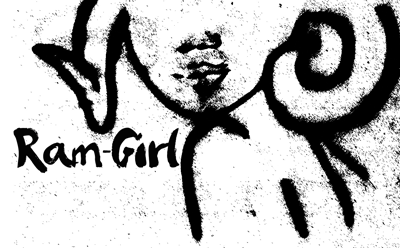

Kalí Kamaria as Ram/Goat, Ramaa
Rhys Green as Monkey, Mikey
Leviticus Padilla as Rooster, Ramón
Written by KL Brisby & Kalí Kamaria
Music by J. Cecilia Bao
Directed by KL Brisby
Ram-Girl is a co-production of
Asian Story Theater & MOXIE Theatre
Presented with the generous support of the
San Diego Chinese Women's Association
J. Cecilia Bao, a well-known Chinese-American composer, pianist, and music educator, began her piano training at the age of three and composed her first piece at four. After the Cultural Revolution, Bao’s exceptional talent led her to the Central Conservatory of Music in Beijing (“CCOM”) as one of the privileged few to study composition under renowned Professor Minxin Du. Upon her graduation in 1983, Bao took on the position of Resident Composer at Beijing Dance College and also became an adjunct assistant professor at the CCOM. In 1988, she released her first piano album through the China National Recording Company. She was the only female musician to hold an interactive piano recital at the People’s Great Hall of Beijing, in which she composed and performed the entire concert program live on stage.
Bao is a musician of dedication and perfection whose decades of experience in composition, performance, and music education helped shape her unique and authentic vision for music and life. Her heritage in Chinese culture and solid foundation in Western music training have enabled her to create compositions that combine the best of both worlds. She has an extraordinary ability to balance classical tradition and modern innovation.
Her refreshing and distinctive works cover piano, vocal, improvisation, and instrumental music. Bao’s commissioned works includes music for “Bus Stop” (by Gao Xing Jian, Nobel winner for literature), the mini-series “Storm,” “White Snake,” “Monkey King,” “Candlewick Fairy,” and “Fa Mulan.” Her music endeavors have earned her lavish praise from renowned Chinese composers and music critics. Among them, Zuqiang Wu accredited her as “the best in improvisational composition” and Guangren Zhou has marveled at her music as “extremely sensitive and imaginative.” Cao Yu, the revered Chinese playwright, considers her "China 's female Mozart,” and the U.S. news media hailed her as the "Eastern music goddess.”
Since moving to the United States in 1988, Bao served as the composer and music director for San Diego’s Asian Story Theater for 10 years and was the artistic director and conductor for the Sunshine Choir. She has also served as a judge in various vocal and piano competitions, and had the honor of serving on the prestigious panel of judges for the First All-America Karaoke Competition. For the last two consecutive years, she was on the panel of judges for the San Diego Share Voice Competition. She has continued to teach, compose, perform, and release albums of her own music in California and in Asia, including “Shadowy Thoughts.” In late 2012, she took on the project Music Journal and in an 18-month period, she wrote and recorded more than 400 pieces of improvisational works, a true testimony for living out her vision.
Leviticus Padilla earned a BA in Theatre Arts with an Emphasis in Performance from SDSU, and he has extensively trained with the British American Drama Academy of Oxford University. His past school credits include The Phantom of the Opera, Cabaret, Jungle Book, Pal Joey and he holds professional credits with shows such as RENT and Avenue Q.
Kalí Kamaria is a California native and a graduate from the California College of the Arts in San Francisco. She is an idealist, a dreamer and believes in the duality of all things. Artist's statement: "My art draws from personal experiences of straddling societal boundaries. Themes center around provocation, self identity and hypersexuality as both an inspiration and a hindrance. My approach and view of everything has been built on these experiences which fuel many of the subjects and aesthetics apparent in my work. I use icons of the human figure as a means to reflect and critique contemporary culture. My work embraces emotional expressionism and explores the narratives and identities of others to project my own views, voice and influences. My approach to figurative representation is modeled by traditional and contemporary modes [of representation] of the body, as models to be learned from and when necessary intentionally broken."